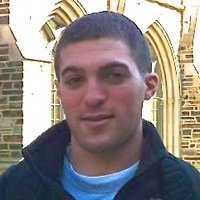Rascals case in brief
In the beginning, in 1989, more than 90 children at the Little Rascals Day Care Center in Edenton, North Carolina, accused a total of 20 adults with 429 instances of sexual abuse over a three-year period. It may have all begun with one parent’s complaint about punishment given her child.
Among the alleged perpetrators: the sheriff and mayor. But prosecutors would charge only Robin Byrum, Darlene Harris, Elizabeth “Betsy” Kelly, Robert “Bob” Kelly, Willard Scott Privott, Shelley Stone and Dawn Wilson – the Edenton 7.
Along with sodomy and beatings, allegations included a baby killed with a handgun, a child being hung upside down from a tree and being set on fire and countless other fantastic incidents involving spaceships, hot air balloons, pirate ships and trained sharks.
By the time prosecutors dropped the last charges in 1997, Little Rascals had become North Carolina’s longest and most costly criminal trial. Prosecutors kept defendants jailed in hopes at least one would turn against their supposed co-conspirators. Remarkably, none did. Another shameful record: Five defendants had to wait longer to face their accusers in court than anyone else in North Carolina history.
Between 1991 and 1997, Ofra Bikel produced three extraordinary episodes on the Little Rascals case for the PBS series “Frontline.” Although “Innocence Lost” did not deter prosecutors, it exposed their tactics and fostered nationwide skepticism and dismay.
With each passing year, the absurdity of the Little Rascals charges has become more obvious. But no admission of error has ever come from prosecutors, police, interviewers or parents. This site is devoted to the issues raised by this case.
On Facebook
Click for earlier Facebook posts archived on this site
Click to go to
Today’s random selection from the Little Rascals Day Care archives….
Click for earlier Facebook posts archived on this site
Click to go to
Today’s random selection from the Little Rascals Day Care archives….
The night Koppel redefined ‘objective and reliable’
April 24, 2013
“Ted Koppel said the idea for (a “Nightline” episode criticizing juries’ growing skepticism toward child-witnesses) had been brought to him by Civia Tamarkin, who although she ‘served on the advisory board of an organization called Believe the Children insists that she remains neutral on the subject…. We have found her to be a useful, objective and reliable source.’
“Tamarkin had indeed devoted a lot of attention to child sexual-abuse cases, along with an abiding conviction that most defendants are guilty…. She believes the McMartin prosecution should have resulted in convictions (and) has praised the prosecution in the Little Rascals case….
“I interviewed prosecutors and defense lawyers in Little Rascals and read trial transcripts. It was clear the child witnesses had been persistently manipulated….”
– From “Koppel lost his balance on child witnesses” by Washington Post columnist Nat Hentoff (Dec. 3, 1996)
Believe the Children, organized by McMartin parents, later expanded to become a clearinghouse for ritual abuse allegations. It apparently disbanded after holding a final conference in Arlington Heights, Illinois, in 1995.
Prosecutors claimed WHAT happened here?
 April 6, 2015
April 6, 2015
A team from the Duke Wrongful Convictions Clinic recently traveled to Buncombe and Madison counties to collect documents from court clerks’ offices, to interview witnesses and to inspect locations where Junior Chandler allegedly abused children who rode his day-care bus.
Billy Chandler, Junior’s brother, and Clayton Rice, his lifelong friend, guided the Duke investigators (and me) along Junior’s daily route. The narrow, twisting backroads led us to the sites along the French Broad River where prosecutors claimed Junior had repeatedly committed the most bizarre sexual crimes imaginable.
The photo at the right shows a typical vantage. It has always seemed incredible to me that Junior – as described in Mark Montgomery’s amended petition for writ of certiorari – “would drive off his route to a parking area next to the French Broad River, strip the clothes off the toddlers, troop the naked children down to the river, put them on a rowboat, proceed to insert various objects into their anuses and vaginas, bring them back to the bus, put their clothes back on and deliver them home.”
Actually visiting and walking around the supposed crime scenes, which are completely open to neighbors and passersby, only reinforces my impression: The allegations against Junior are simply inconceivable.
So where do things stand as Junior Chandler approaches his 29th year in prison? Clinic co-director Theresa Newman provided this cautious update: “The Duke Wrongful Convictions Clinic has spent the past few months studying the file passed to them by previous post-conviction counsel, researching the developments in the relevant medical and psychological science since the mid-1980s, and otherwise trying to master this complicated and complex case. We are now moving into the next phase of our typical investigation….”
The title of Newman’s illuminating TEDx talk at Elon University couldn’t be more apt: “Waiting is a Beast.”
Prosecutors must recognize vulnerability to cognitive flaws

mic.com
Michael Shammas
Nov. 17, 2016
“It’s no secret that we humans grant far too much confidence to our opinions. But when powerful people do this, the dangers compound. Zealotry replaces fair-mindedness. The worst excesses happen when prosecutors forget they’re flawed humans, like anyone else, and that as a result they’re subject to cognitive flaws like tunnel vision, racial bias, and the desire to reduce cognitive dissonance through ‘cognitive consistency’ even at the expense of complicated, nuanced, self-contradictory, paradoxical truth….
“Cognitive bias and overconfidence touch us all. Only a conscious awareness that we might be wrong can counter unthinking heuristics, biases, and schemas that lead to imperfect conclusions….
“Wisdom counsels not the confident use of power, but the wise use of power. The first step of wisdom is recognizing how little we know….”
– From “ ‘Making a Murderer’ Attorney Highlights Our Troubling Rate of Wrongful Conviction — and Suggests a Solution” by Michael Shammas in the Huffington Post (July 12)
And the latest on the still-imprisoned Brendan Dassey.
![]()
When ‘backlash spewed,’ Judy Abbott blamed ‘falsehoods’
Oct. 19, 2012
“The backlash spewed from the guilty verdicts in the Little Rascals Day Care case have (sic) been painful and difficult to hear and live with. Those of us who advocate for the rights of children often feel that the gains made on their behalf over the past few years are eroding under falsehoods propagated by individuals who’s (sic) motives are undetermined.”
– From “Little Rascals Day Care Center Case: The Bitter Lesson, a Healthy Reminder” by Judith Steltzner Abbott (1994)
If the editors of the Journal of Child Sexual Abuse set aside six pages in hopes therapist Judy Abbott might respond thoughtfully to the Little Rascals “backlash,” they were surely disappointed. Instead, she dodged reality with platitudes and self-congratulation.
Of course, even to acknowledge the concerns of her falsehood-propagating critics (the ones with “motives undetermined”) might have put at risk her nomination for the Distinguished Women of North Carolina Award.











0 CommentsComment on Facebook